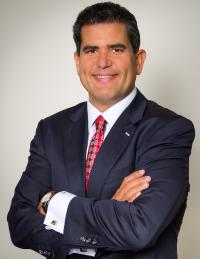Former UnitedHealthcare executive Roger Rodriguez said that during his tenure with the insurance giant, he endeavored to view payer issues through a provider lens.

It was that focus that lured him out of retirement and to join the team at Genuine Health Group, Rodriguez told Fierce Healthcare exclusively. Miami-based Genuine is an integrated healthcare company that aims to drive greater uptake of value-based care.
He will initially serve as senior adviser, gaining familiarity in the company's day-to-day operations, according to a press release from Genuine Health Group.
Rodriguez said Genuine Health Group works with both payers and providers to make it easier for the latter to take on greater risk.
"Industrywide, it has been a shift from the pay for value versus pay for volume," he said. "And a lot of the providers, specifically the independent ones, don't have the resources or the expertise needed to support that … so Genuine becomes the support that allows them to do that."
Rodriguez retired from his role as CEO of UnitedHealthcare’s Medicare and retirement business for the southeast in 2022. In this position, he oversaw care for 650,000 Medicare Advantage members and managed a segment generating $7 million in profit and loss revenue, according to the announcement.
During his tenure, he led the integration of Medica HealthCare Plans and Preferred Care Partners into UHC and was behind the insurer's strategy to launch a "United for South Florida" portfolio, which drove significant growth for five years in a row.
He said that while he tried to "view the world from a provider lens" during his time in the payer space, making the jump to Genuine still feels a bit like "looking at the flip side of the mirror." A major focus in his role, Rodriguez said, is to guide the company's geographic growth as well as expansion in its payer partnerships.
"For me, it wasn't that significant a transition from the payer to the provider, but it's kind of understanding the priorities on on both sides," he said.